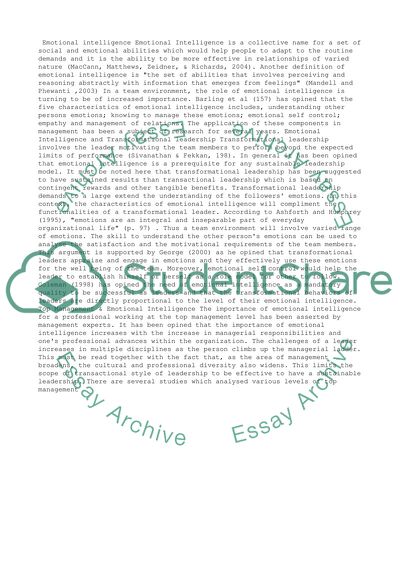Cite this document
(“Emotional Intelligence and it's Impact on Leadership Styles Essay”, n.d.)
Retrieved from https://studentshare.org/management/1444651-emotional-intelligence-and-it-s-impact-on
Retrieved from https://studentshare.org/management/1444651-emotional-intelligence-and-it-s-impact-on
(Emotional Intelligence and it'S Impact on Leadership Styles Essay)
https://studentshare.org/management/1444651-emotional-intelligence-and-it-s-impact-on.
https://studentshare.org/management/1444651-emotional-intelligence-and-it-s-impact-on.
“Emotional Intelligence and it'S Impact on Leadership Styles Essay”, n.d. https://studentshare.org/management/1444651-emotional-intelligence-and-it-s-impact-on.


